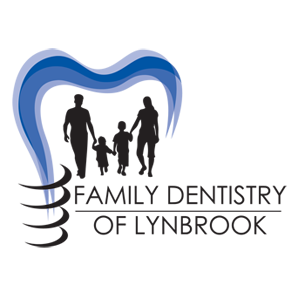In addition to the primary goals of preventing tooth decay and gum disease, children have special needs for their developing teeth. Dr. Patel will discuss a care and prevention plan that addresses these special needs and promotes good dental hygiene for the whole family.
When do children need to start seeing Dr. Patel?
The sooner the better, but certainly by age two. An early dental visit lets Dr. Patel examine your child’s teeth and gums to make sure there are no early problems. Your child’s first visit may just be to get them comfortable with the office, or for a quick examination.
What kind of care do infants need?
Good dental hygiene starts even before there are any visible teeth. Parents need to wipe the gums of infants with a damp soft washcloth after each meal and before bed. Once teeth emerge, parents should brush them with a soft toothbrush. To prevent tooth decay, no child should be put to bed with a bottle of anything other than water. A visit to Dr. Patel is recommended before the second birthday. Ask him if a fluoride supplement is necessary.
What kind of care do children need?
As with adults, dental care for children focuses on preventing tooth decay and gum disease. Some children are especially prone to tooth decay because of diets that are heavy on sweets or poor dental hygiene. Since their teeth are still developing, they have some special needs as well:
- Just like adults, children’s teeth need to be brushed with a fluoride toothpaste at least twice a day. Brushing before bedtime is especially important, but brushing in the morning and after eating is recommended whenever possible. Dr. Patel suggests that you help younger children with their brushing until they are capable of properly doing it themselves.
- Use a soft-bristled toothbrush that is small enough to reach all their teeth. Replace it when the bristles start to wear.
- Try to minimize the amount of toothpaste children swallow. They only need a pea-sized amount on their brush, and they should be taught how to rinse and spit.
- Dr. Patel recommends dental appointments for children every 6 months. These visits will include a thorough examination and a professional cleaning by Dr. Patel or his dental hygienist.
- Children need to start flossing every night before bed once they get their permanent teeth.
- In their teen years, Dr. Patel will discuss whether braces or extraction are recommended to keep teeth straight and uncrowded.
- Dr. Patel may recommend fluoride supplements.
What prevention is possible with regular dental visits?
Regular dental visits serve two important purposes – to regularly give teeth a very thorough cleaning, and to examine teeth and gums for signs of serious problems. Children can resist cavities with good diet and proper dental hygiene. Dr. Patel can discuss specific methods to fight tooth decay, including fluoride treatments and special sealants for children’s permanent molars.
Why is care and prevention important for children?
Dental problems tend to get worse when left untreated. When your children see Dr. Patel for regular visits, small problems won’t have a chance to become major concerns. Good hygiene and dental visits are cost-effective, too. It costs much more to have teeth repaired and replaced than it does to have regular exams and cleanings.
My child can’t or won’t let a dentist get near their mouth. What can Dr. Patel do?
Fear of strangers is normal and healthy for children. You can help your child get past these common fears by bringing them to your own routine dental visit. When your child meets Dr. Patel and watches you being treated, it can make it easier for them to get comfortable with their own visit. Dr. Patel and the whole dental team are experienced at working with children, and they will do everything they can to put your child at ease and keep the experience stress-free. For more severe issues of dental fear and anxiety, ask Dr. Patel about anxiety-free or sedation dentistry specifically designed for children.

